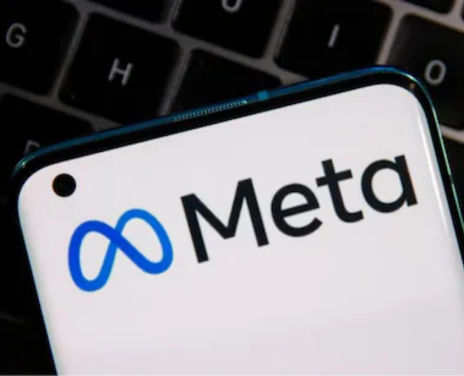In the competition to spark the next wave of groundbreaking innovation, Meta is making a major investment in AI technology—going so far as to offer a staggering ₹3.76 crore base salary for premier AI engineers. While the figure itself captures attention, the real story underscores a profound shift within the global tech landscape and the challenges it presents.
At Aixcircle, we are interested in understanding how Meta’s recent headlines affect the underlying relationships that exist in the AI ecosystem for better and for worse.
💼 Meta’s AI Salary Move: What’s Behind the ₹3.76 Crore Offer?
Even in the industry, Meta’s AI strategies remain common knowledge. The company is known for its spending—including proprietary Llama models and AI-powered features for Instagram, WhatsApp, and Facebook, surpassing and possibly expecting to outpace players like OpenAI and Google DeepMind.
To do that, Meta needs more than GPUs. According to multiple sources, the company intends on paying a premium—reportedly up to $450,000 (₹3.76 crore) sans stock bonuses—for AI specialists in foundational model development, multi-modal systems, and agent-based architecture.
However, the proposal raises complex concerns in addition to the generous claims highlighted.
⚠️ The Increasing Gap: Why This Salary Pattern is Dangerous
1. Increasing the Difference in Talents
While top-notch engineers are profiting, this practice deepens the divide between elite and intermediate AI professionals. Startups, universities, and even government-funded projects find it impossible to keep up with these pay rates. This leads to:
- The loss of knowledge in public research laboratories and academia.
- Slow progress in open innovation as corporations hoard talent.
- Increasing skill gaps in emerging economies.
2. Skills AI Specialists Becoming Burden and Escalating Cost
Because of this, only the major players in tech will be able to use AI capabilities. Smaller companies with constrained budgets could find it impossible to:
- Employ an implemented AI engineer.
- Create AI models internally.
- Keep employees long enough to expand project scopes.
3. Ethically Oblivious
Staff with such high salaries have financial incentives that may motivate them to ignore bias and fairness, data privacy, or models that are transparent. A powerful tool is only helpful if it safe, explainable, and inclusive. Companies like meta need to make sure their well-paid AI specialists don’t solely focus on creating powerful systems.
🧠 The AI Talent War: Changing Global Perspectives
This is not solely the story of Meta. This is a global indicator.
All over the globe:
- Google is synthesizing LLM experts from Stanford and MIT.
- OpenAI is doling out multi-million-dollar stock options.
- Startups like Anthropic and Mistral are poaching ex-Meta and Google researchers with venture capital backed salaries.
- And India is not immune. Engineers from IITs, BITS, IISc, and leading startups are being targeted for US remote work or relocation offers.
- Meta’s ₹3.76 crore package is not only focused on reward; It is focused on retention, attraction, and domination in the forthcoming AI economy.
📉 Problems on the horizon: What is the actual cost?
🏢 1. Corporate AI Monopolies
We risk creating monopolies in AI intelligence and infrastructure as companies like Meta purchase up the best talent. Fewer players controlling:
- Model capabilities
- Access to compute
- Data pipelines.
This stifles innovation for others and locks out small players from critical tools.
🤖 2. Speed Over Safety
Aggressive spending leads to aggressive deadlines. It raises the alarming possibility that:
- AI models may be deployed before they are prepared.
- Competing firms may cut corners on safety procedures.
- Less Strict regions may fall prey to exploitation of regulatory grey areas.
- Meta must be matched with rigid ethical guardrails, or we risk uncontrollable systems.
💬 3. Losing Public Trust
The combined influence of strong salaries and powerful systems often prompts public skepticism. This can make people :
- Not trust AI systems that are developed in secret.
- Worry about losing jobs because of AI.
- Rage for more automations AI laws which might be too late or too extreme.
🔮 Salary Dynamics and Future Changes & Strategic Shifts
This are some of our predictions:
📈1. AI Salaries Will Keep Increasing
Key employees might demand anywhere from ₹4-5 crores in the next 2 years for the following positions:
- Multi-agent simulations
- AGI safety
- LLM fine-tuning and deployment at scale by large volumes
🌏 2. Global AI Recruitment Will Be From The Heart Of India
India has a profound IT engineering and growing AI industry making it the location for the hiring of LLM engineers which puts it a step ahead with Mega’s aggressive hiring strategy.
🤝 3. Parallel Growth of AI Compliance Teams
To keep AI compliance and trust among the public, new paths to ensure compliance and policy for fairness in AI will be created by companies through internal ethics frameworks on transparency and human-centered AI design.
✨ Conclusion: Great Pay, Greater Responsibility
It is clear that Meta’s AI paycheck of ₹3.76 crores is a reflection of the power, control, and competition in the ecosystem of digital technology. Every opportunity has dangers. Now it is a crucial time when risks need responsibility, and innovation needs to be combined with trust.
At Aixcircle, we maintain that the future will be engineered not only based on speed, but also shall be built on strategy, trust, and equity.
Don’t miss our posts covering the most important changes in AI, technology, leadership, and innovation of the world.


